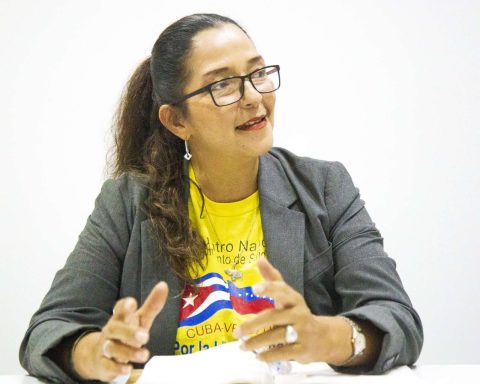
“End the CAE” was one of the strongest slogans that thousands of students raised during the 2011 demonstrations, to which the then president of the Fech, Gabriel Boric, joined as one of the leaders of said protests a year later.
Ten years later, the now President-elect promises to forgive the debt of the Credit with State Guarantee (CAE), the same one that has among its designers Christian Larraín Pizarro, recently appointed by the President-elect himself as Undersecretary of Social Welfare. The designation immediately generated noise in some circles linked to education and that was added to questions about other names, to which La Moneda Chica reacted, lowering its profile.
The next Minister of the Interior, Izkia Siches, in a general way, stressed that “rather than failing the check, there are always antecedents that are not fully known, but there are many of them that were known by the teams and were considered at the time of make the appointments. Meanwhile, PPD senator Jaime Quintana added that “there will always be objections to an appointment, but many times that has to do with the fact that it may not be in line, to the taste of some sector. I think they are highly prepared.”
Christian Larraín is not a stranger. From 2018 to 2020, he was commissioner and vice president of the Commission for the Financial Market (CMF), while before, in 2016, he participated in the advisory group of the Ministry of Economy to modify the General Law of Banks. A year earlier, he was also part of the Presidential Advisory Commission of then-President Michelle Bachelet, called the “Bravo Commission” – led by David Bravo. He paved the way a couple of years earlier, when he was coordinator of the Financial Supervision and Regulation Commission of the Bachelet program. In the private sphere, he is a partner of the CL Group, which specializes in financial advice to organizations, including governments.
But his most remembered participation was during the Government of Ricardo Lagos. In June 2005, Law 20,027 was enacted, which establishes a financing system for higher education, which seeks to expand access for low-income students. There, the Administrative Commission of the Credit System for Higher Studies, better known as the Enter Commission, was created, which promoted the Credit with State Guarantee committed by Lagos Escobar in 2003.
The director of that commission was Christian Larraín. Although the original idea was to grant bank credits with lower rates and without requiring a guarantee, having the State as guarantor, the mechanism was not successful, since the banks did not see a good deal in the mechanism and did not want to participate. In this context, at the end of 2005, Larraín Pizarro opted for the “recharge”, a mechanism that already in 2011 reported profits of $150 billion to the banks, damages for the State and over-indebtedness of the students.
It consisted, in simple words, of the bank granting credits – at that time with a rate of 5.6% – with the commitment that the State would later buy those credits with a premium determined by the financial entity, and that they became excessive. , exceeding –between the years 2006 and 2011– 62% recharge, in the case of Banco BCI, as verified at that time Ciper Chile.
That same year, Christian Larraín himself justified that, given the little guarantee of the banking entities to participate in the delivery of the CAE, it was convenient for the State to pay a surcharge so as not to leave out students with no other economic possibility. “If, as a result of the mechanism, the State saves the cost of financing the portfolio, reduces default from 50% to 10% or 15%, and gets rid of 10% of the credit risk, then it is convenient to pay a certain overpricing, certainly within reasonable margins”, was what he said, alluding to the terrible experience that –in his opinion– credits such as Corfo and Indap meant, in terms of the administration of such credits and collection by state agencies.
“The banks, by charging a reasonable surcharge, free the treasury from all that burden. If the rates remain around the 6% that CorpBanca requested in 2011, it seems to me that the system works well”, he assured, adding that after the first two years of operation “the surcharge should not have been higher than 10%”. Statements he gave at the height of the university movement. Everything ended later in some changes in the following administrations, promises to end the CAE and cancel the debt, and even in investigative commissions.
Years later, in 2018, former President Ricardo Lagos washed his hands of the implementation of the credit, leaving it to the incoming government of Michelle Bachelet, and to the Enter Commission, in which the Ministries of Finance and Education also participated.

















